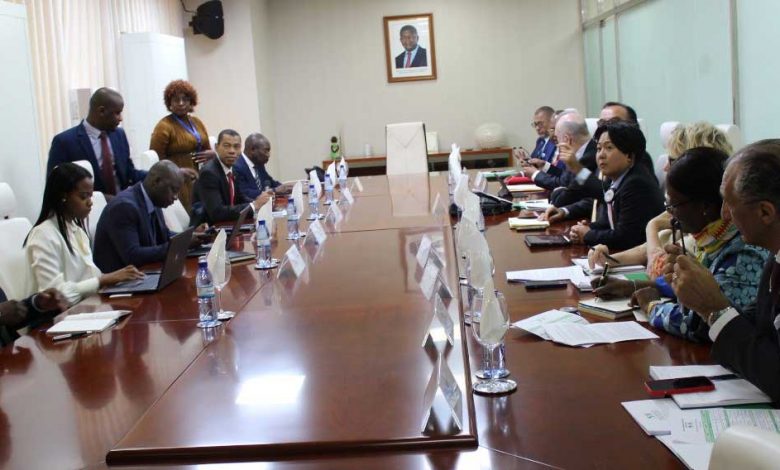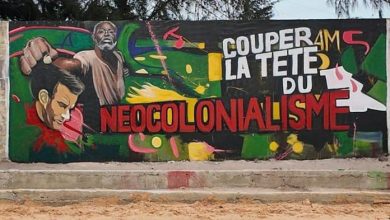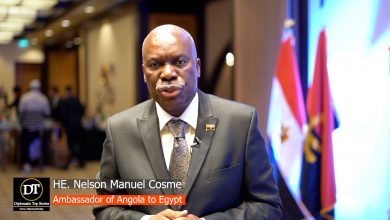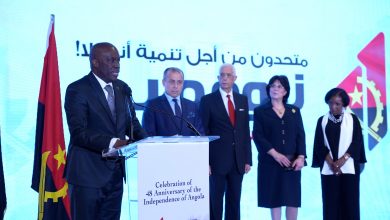Angola: Executive Directors of the African Development Bank carry out a working mission | African Development Bank

Diplomat.Today
The African Development Bank
2023-03-20 00:00:00
——————————————-
Eight executive directors of the African Development Bank Group have completed an official mission to Angola. The delegation met with representatives of key ministries, including the ministries of planning, agriculture and finance.
The executive directors met with the governor of the National Bank of Angola, José de Lima Massano, who highlighted the country’s successes in stabilizing the exchange rate and transforming financial regulatory processes and systems in the country.
The group met Secretary of State for Finance and Finance Dr. Ottoniel dos Santos, who indicated that the various ministries should collect and analyze the guidelines of the bank’s executive directors and look for implementation strategies.
The directors also met with private sector actors in the agricultural sector at a meeting organized by the Chamber of Commerce, BFA (Bank of Fomento Angola), Standard Bank, Industrial Association of Angola, the association of agro-pastoralists, Angola Development Bank and the Bank Association in Angola. They met with the team from the bank’s country office, where they heard presentations on the macroeconomic and fiscal situation of the country and the bank’s activities in Angola. The visit took place from March 6-10.
Angola is making strides in STEM education
Executive Director for Mauritius, Gerard Bussier, who led the delegation, spoke of the importance of the Bank’s support to the education sector in the field of science and technology.
During a visit to CAZENGA Secondary School number 3114 in Luanda, the principals heard student testimonials and experienced first-hand the impact of the transformational education project.
The project has funded state-of-the-art biology, physics and chemistry laboratories for the school, as well as scholarships for more than 800 students, including 610 scholarships for girls in Science Technology, Engineering and Mathematics (STEM).
Angola suffers from low school dropout rates and only 1 in 10 students go to university. This project has focused its intervention at the high school level, although some girls have since achieved higher degrees funded under the project.
The directors interacted with students who have benefited from the scholarships funded by the project.
João Luis Ngimbi, Executive Director for Angola, praised the initiative and advised students: “You should strive and study to improve your living conditions, you should always think that in life you have time for everything and we should always have time to to study.”
Fishing project increases the income of the inhabitants of the province of Zaire
The Executive Directors visited Nzeto Municipality, Zaire Province, northern Angola, for a tour of the Fisheries Support Project. The Nzeto center is part of the Bank’s fisheries sector support project and processes up to 90 tonnes of fish per week, through filleting, drying and salting, depending on weather conditions. About half of the production is exported to neighboring countries (Congo Brazzaville and the Democratic Republic of Congo).
In addition to a tour of the freezing and drying facilities, they interacted with the boat maintenance team and other users of the center. They listened to the challenges of fishermen, women processors and merchants.
Lisa da Cunha, a boat owner, said the availability of freezing and processing facilities had boosted trade with neighboring Congos and significantly increased fishermen’s incomes. While highlighting the richness of the region’s fish stocks, da Cunha also spoke of the challenges faced in entering markets and prices in the fish market.
Fishermen representatives explained the importance of investing in a pier to improve access to fish and improve safety at work.
On the occasion of March 8, International Women’s Day, the day the Executive Directors visited, they distributed training certificates to female fishmongers who had completed training in fish processing and preservation as part of the project.
In Cabinda, the executive directors visited the Cabinda Province Agricultural Value Chain Development Project (CPAVCDP), which aims to improve the production, conservation, storage, transformation and marketing of commodity value chain infrastructure. They also visited the Women’s Fisheries Association.
Science and technology park to transform research and innovation in Angola
A highlight of the Directors’ trip was their participation in a groundbreaking ceremony for the proposed Science and Technology Park of Luanda, funded by the Bank, as part of the Science and Technology Development Project. The Project for the Development of Science and Technology (PDCT), is carried out by the Ministry of Higher Education, Science, Technology and Innovation (MESCTI)
Construction of the park is expected to take 30 months.
The Angolan Minister of Higher Education, Science, Technology and Innovation, Maria do Rosário Bragança, presided over the ceremony highlighting the stages of construction and its impact on Angolan society. She said: “Luanda’s Science and Technology Park could usher in a new era of scientific research in Angola and its importance can also contribute to the development of the country’s economy”.
During a meeting with Secretary of State for Forestry of the Ministry of Agriculture Dr. André de Jesus Moda, he noted that “the country (Angola) has great challenges in the sector, financial problems, dependence on rainwater to make agriculture and little knowledge in the transformation of products from the field.” The visit took place from March 6-10.
Moda also mentioned infrastructure development plans prepared by the government, such as the Planagrão, the construction of the Cafu canal for water redistribution to farmers and the construction of the sector development plan.
Pietro Toigo, country manager of the African Development Bank, noted that the mission enabled executive directors to not only verify the implementation of bank-funded programs but also gain an overview of the country’s economic framework .
“The government’s commitment to implementing bold strategies and policies to improve the macroeconomic environment is reflected in the level of sectoral reforms that have taken place in the economy. The investments made by the government with the support of development partners and especially the Bank have created a new context to improve the living conditions of Angolans,” he said.
——————————————-



